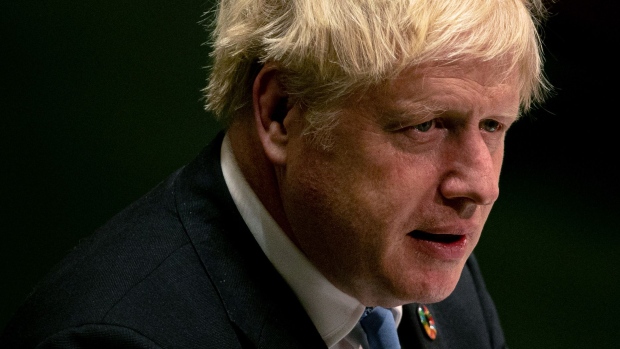Jul 20, 2020
Russia Meddling Report Delayed by Johnson to Be Released Tuesday
, Bloomberg News

(Bloomberg) -- It’s a question that’s baffled observers of Boris Johnson. Why did the prime minister block the publication of a report on Russian interference in U.K. democracy, even though the contents are said to be neither explosive nor damaging to his government?
According to two people familiar with Parliament’s Intelligence and Security Committee report into Russian espionage and electoral interference, which was due to be published last October but will finally come out on Tuesday, there is “no nuclear bomb” that will shake the government. In fact, many in the intelligence community regard the findings as already out of date.
According to one version of events, Johnson canceled its publication last year because he didn’t want the committee’s then chairman, Dominic Grieve, to receive any publicity at a time when the Remainer was making the government’s life difficult over Brexit.
A general election followed in December, further delaying the process before Johnson dragged his feet over the nomination of a new committee.
The government’s eventual efforts to reconvene the cross-party panel with a friendly chairman were embarrassingly thwarted last week, when members voted not for former Transport Secretary Chris Grayling, but Julian Lewis, who was promptly kicked out of Johnson’s Conservative Party.
The long-awaited report will finally be published at 10:30 a.m. on Tuesday amid some last-minute panic from individuals who fear their names will feature in its pages.
“What could be in the report that nobody knows is donations from rich Russians to the Conservative Party,” Elisabeth Schimpfössl, author of Rich Russians, said in an interview. Billionaire Brexit backer Arron Banks has also asked for the right-to-reply before publication if his name is in the report.
Even without any bombshell revelations, the report will put Russia once again in the U.K. political spotlight, days after Johnson’s government accused it of trying to hack Covid-19 vaccine research, a charge Moscow denied.
©2020 Bloomberg L.P.





